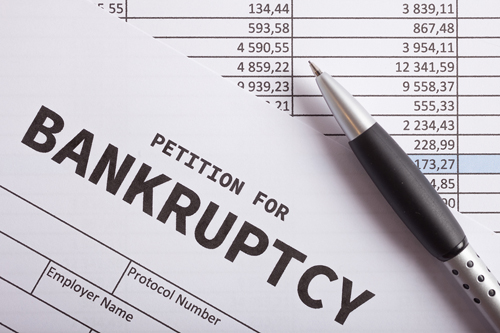How Does Bankruptcy Affect Inheritance?
What happens if you receive an inheritance after you file for Chapter 7 bankruptcy? What if you receive an inheritance after you file for Chapter 13? Are you still entitled to the funds, or can creditors take the money to pay off your debts? Our Pennsylvania bankruptcy attorneys explain some of the potential outcomes.
Inheritance and Chapter 7 Bankruptcy: The 180-Day Rule
Unfortunately, in some cases it is possible for an inheritance received during a Chapter 7 bankruptcy to be taken by your creditors and applied toward your debts. Whether or not that can happen depends on when you received the inheritance, and whether the inheritance money is considered exempt property or non-exempt property.
If you received your inheritance within 180 days of filing, it will be added to your “bankruptcy estate,” which refers to all property and assets which the trustee may administer, i.e. sell and distribute. However, the Chapter 7 bankruptcy trustee may only sell and distribute property which is non-exempt. Therefore, an exempt inheritance could not be sold to your creditors by the trustee.
If you received your inheritance after 180 days already passed, you have even more protection. The inheritance will not be considered part of the bankruptcy estate, which means it is off-limits to the trustee regardless of whether it is considered exempt or non-exempt.
How Inheritance Affects Your Chapter 13 Repayment Plan
The rules for inheritance under Chapter 13 are more complicated.
In Chapter 13 bankruptcy, you create a three- to five-year repayment plan to gradually pay off your creditors at a steady, reasonable pace. The amount you must pay is calculated based on your disposable income, plus the total value of your non-exempt property (i.e. property the trustee is permitted to sell to your creditors). This value must surpass or at least equal the total you would have paid toward your creditors under Chapter 7 — which unlike Chapter 13 is need-based — in order to meet “the best interest of creditors.”
As a result, your repayment plan must reflect the total of a non-exempt inheritance. For example, you would need to match a $5,000 inheritance with $5,000 in payments, spread across the duration of your long-term repayment plan. Essentially, receiving an inheritance accordingly raises the amount you must repay your creditors.
It is also important to consider the possibility that the exemption may not cover the full amount of an inheritance, which means the remainder of the inheritance (beyond the limits of an exemption) would be considered non-exempt and subject to redistribution by the bankruptcy trustee handling your case.

Do Bankruptcy Exemptions Cover Inheritance?
How much of your inheritance is exempt depends largely upon what sort of inheritance you are receiving. For example, the state of Pennsylvania has no explicit “inheritance exemption.” It does, however, provide exemptions for items such as personal property, business property, real property, and private retirement benefits. Therefore, if you inherited personal property, you may wish to use the personal property exemption, and so forth. (Note that personal property applies to possessions, such as clothing, while real property applies to land and housing.)
Additionally, Pennsylvania and New Jersey both allow debtors to choose between the state and federal exemptions. (In some states, debtors do not have this option.) However, you should be aware that regardless of whether you reside in Pennsylvania or New Jersey, you must stick with the set of exemptions you select — you cannot mix and match between both sets. Your bankruptcy lawyer can help you determine which set of exemptions are available to you, and how to use them advantageously to protect as much of your property as possible.
If you inherited:
- Real Property — You will need to amend Schedule A (also called B6A or Official Form 6A). Real property covers “all real property in which the debtor has any legal, equitable, or future interest, including all property owned as a co-tenant, community property, or in which the debtor has a life estate.”
- Personal Property — You will need to amend Schedule B (also called B6B or Official Form 6B). Personal property covers cash, checking accounts, savings accounts, computers, AV equipment, household goods, books, antiques, furs, clothing, jewelry, firearms, sporting equipment, insurance policies, stocks, and other items.
Note that on June 12, 2014, the U.S. Supreme Court ruled that inherited IRAs, or Individual Retirement Accounts, are not counted as retirement funds, meaning they are not considered exempt from creditors.
Our Pennsylvania Bankruptcy Lawyers Can Help
If you’re considering filing for Chapter 13 or Chapter 7, or if you have any questions about your legal rights and obligations as a debtor, the experienced New Jersey bankruptcy lawyers of Young, Marr, Mallis & Associates can help. To arrange for a free and private case evaluation, call our law offices at (609) 755-3115 in New Jersey or (215) 701-6519 in Pennsylvania today.






























